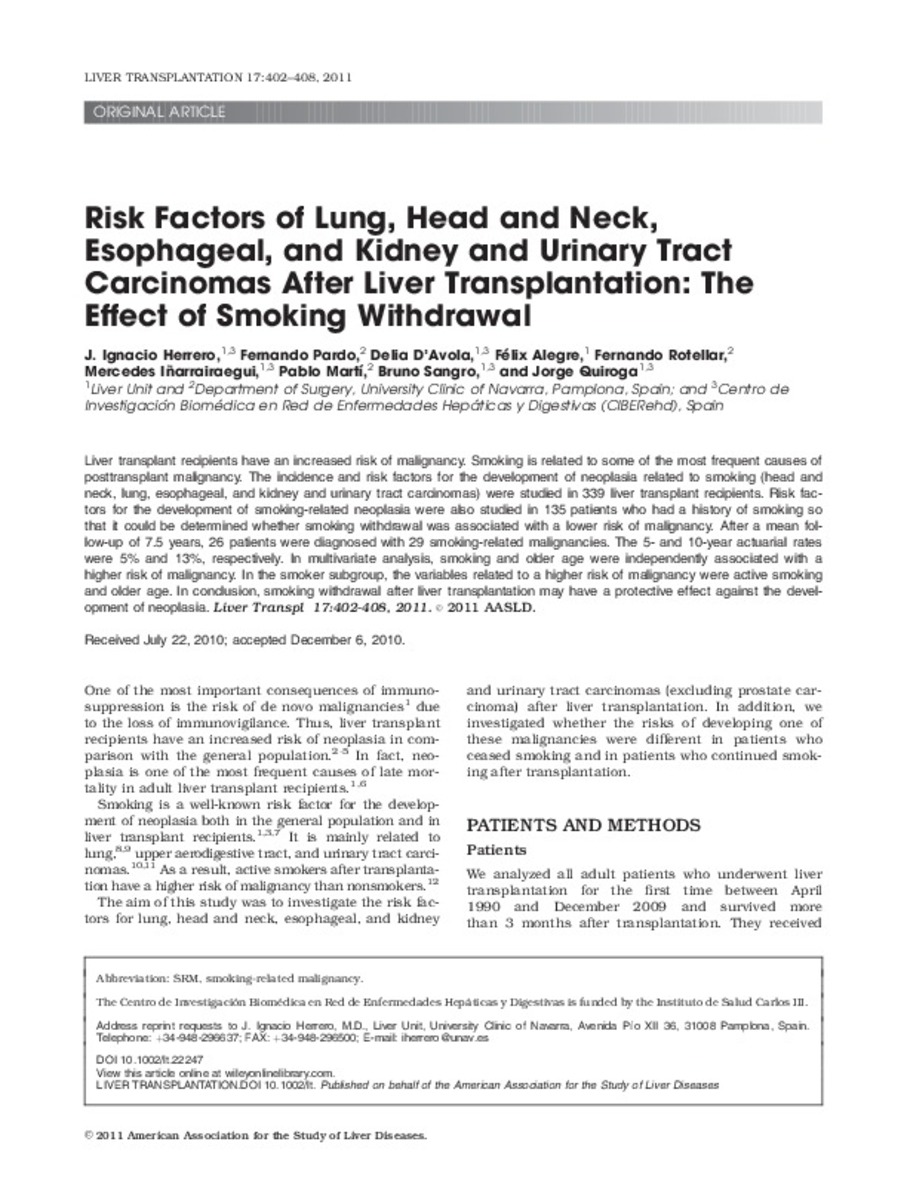Risk factors of lung, head and neck, esophageal, and kidney and urinary tract carcinomas after liver transplantation: the effect of smoking withdrawal
Keywords:
Esophageal Neoplasms/etiology
Head and Neck Neoplasms/etiology
Kidney Neoplasms/etiology
Publisher:
Wiley-Blackwell
Citation:
Herrero JI, Pardo F, D'Avola D, Alegre F, Rotellar F, Inarrairaegui M, et al. Risk factors of lung, head and neck, esophageal, and kidney and urinary tract carcinomas after liver transplantation: the effect of smoking withdrawal. Liver Transpl 2011 Apr;17(4):402-408.
Statistics and impact
0 citas en

0 citas en

Items in Dadun are protected by copyright, with all rights reserved, unless otherwise indicated.







